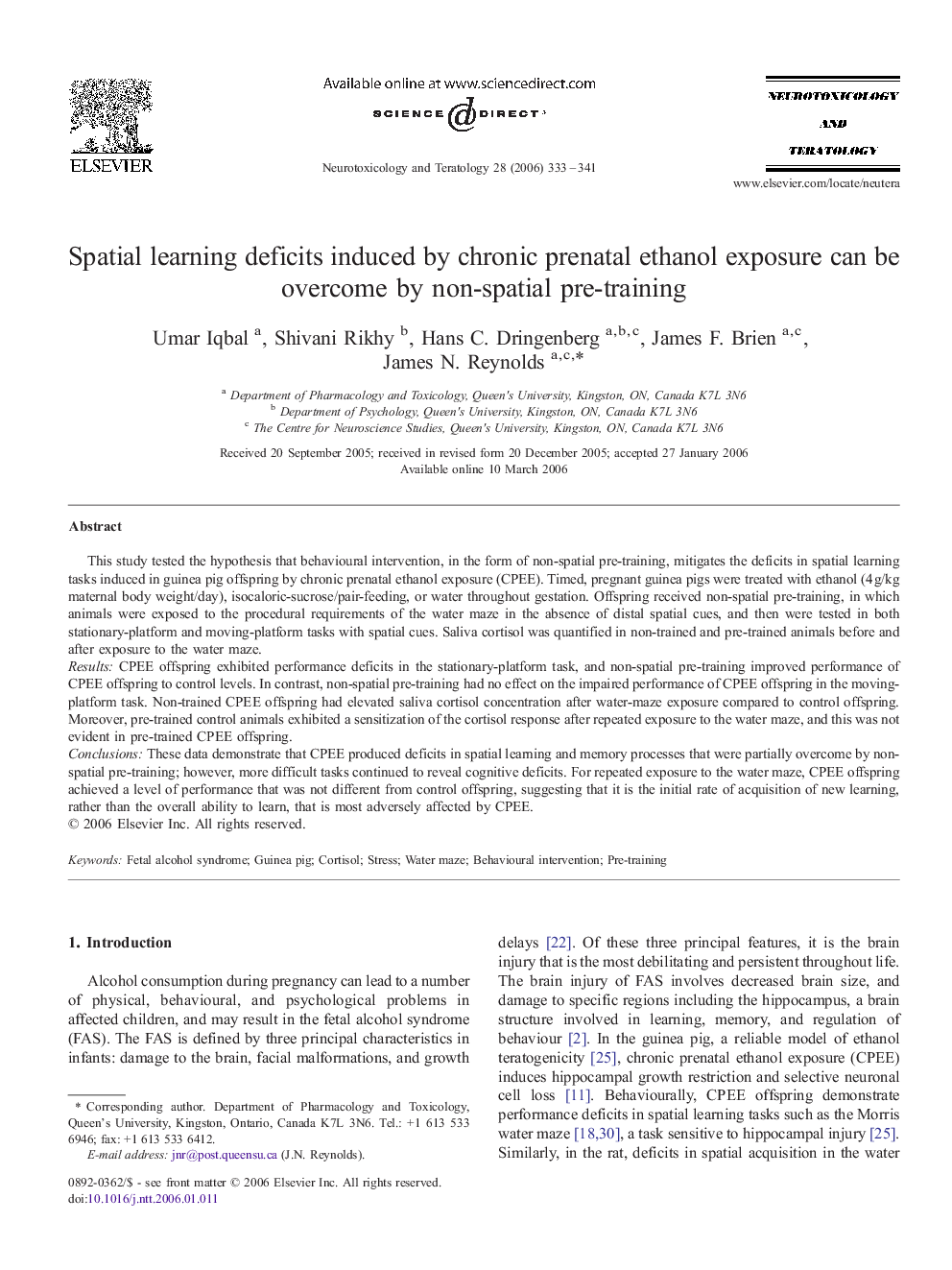| Article ID | Journal | Published Year | Pages | File Type |
|---|---|---|---|---|
| 2592227 | Neurotoxicology and Teratology | 2006 | 9 Pages |
This study tested the hypothesis that behavioural intervention, in the form of non-spatial pre-training, mitigates the deficits in spatial learning tasks induced in guinea pig offspring by chronic prenatal ethanol exposure (CPEE). Timed, pregnant guinea pigs were treated with ethanol (4 g/kg maternal body weight/day), isocaloric-sucrose/pair-feeding, or water throughout gestation. Offspring received non-spatial pre-training, in which animals were exposed to the procedural requirements of the water maze in the absence of distal spatial cues, and then were tested in both stationary-platform and moving-platform tasks with spatial cues. Saliva cortisol was quantified in non-trained and pre-trained animals before and after exposure to the water maze.ResultsCPEE offspring exhibited performance deficits in the stationary-platform task, and non-spatial pre-training improved performance of CPEE offspring to control levels. In contrast, non-spatial pre-training had no effect on the impaired performance of CPEE offspring in the moving-platform task. Non-trained CPEE offspring had elevated saliva cortisol concentration after water-maze exposure compared to control offspring. Moreover, pre-trained control animals exhibited a sensitization of the cortisol response after repeated exposure to the water maze, and this was not evident in pre-trained CPEE offspring.ConclusionsThese data demonstrate that CPEE produced deficits in spatial learning and memory processes that were partially overcome by non-spatial pre-training; however, more difficult tasks continued to reveal cognitive deficits. For repeated exposure to the water maze, CPEE offspring achieved a level of performance that was not different from control offspring, suggesting that it is the initial rate of acquisition of new learning, rather than the overall ability to learn, that is most adversely affected by CPEE.
